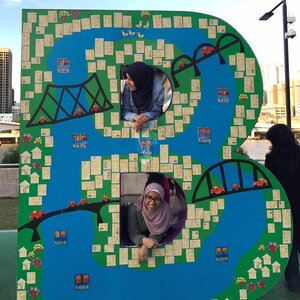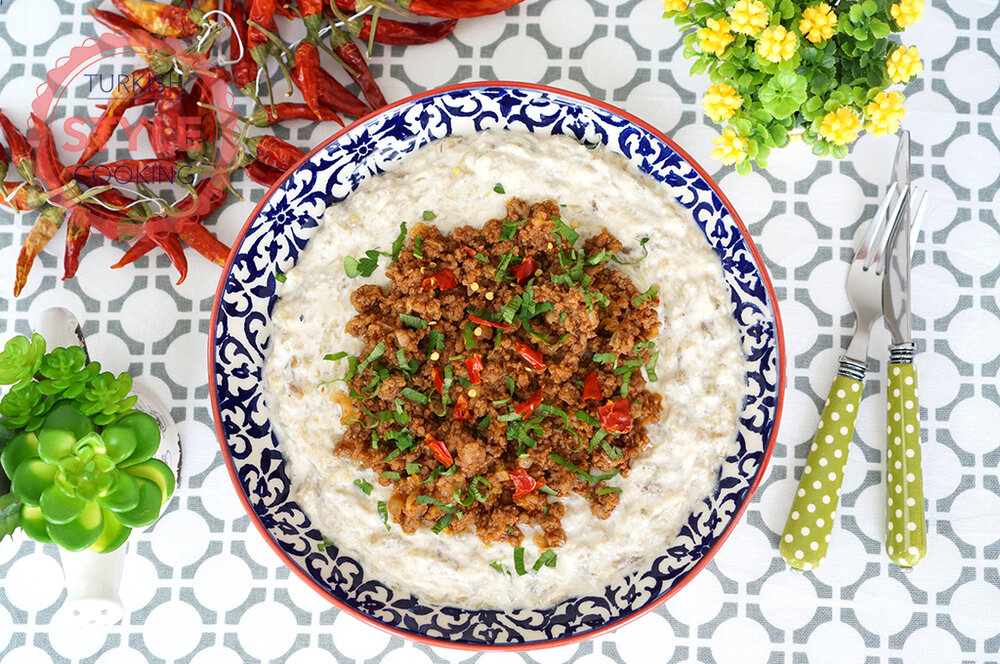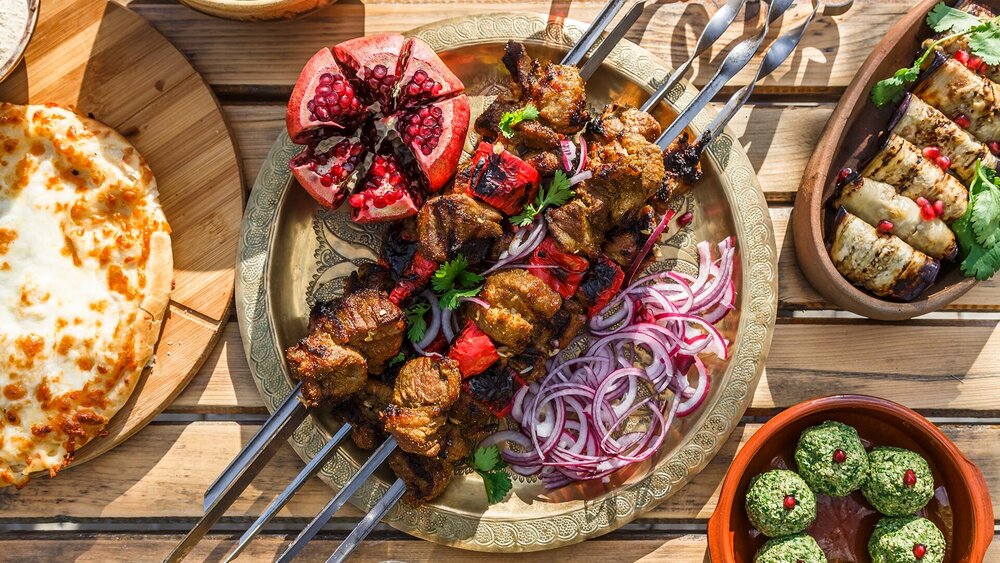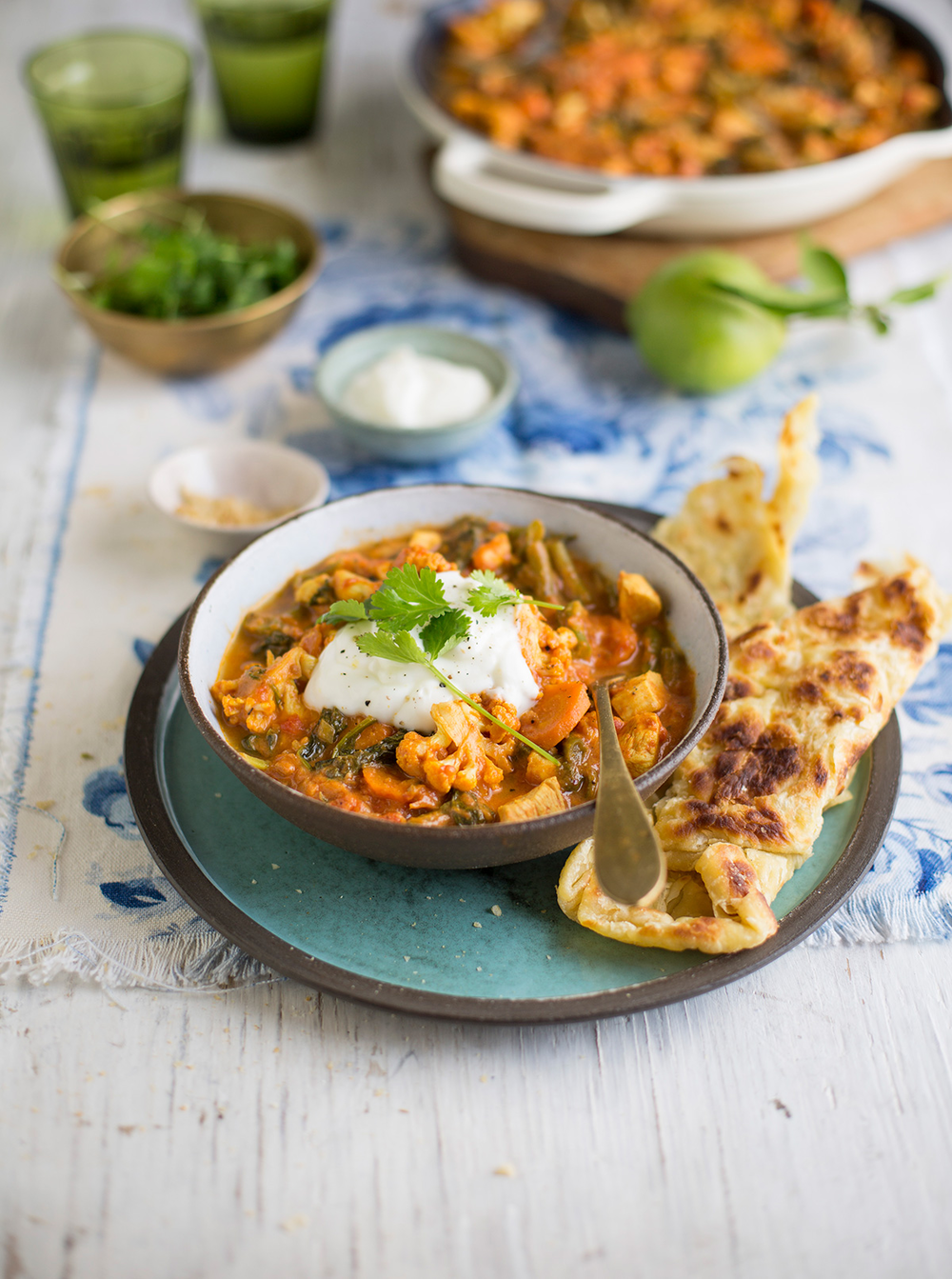Beyza’s Ali Nazik from Gaziantep
 Turkey
Turkey 
I am Australian with a Turkish background. For our special occasions, my dad becomes our Masterchef and does most of the shopping. My mum and I help him with the preparation and organising in the kitchen.
My father is from Gaziantep in the South-East of Turkey. It’s known as the Paris of the East of Turkey and the best city for its economy, living standards and food. Gaziantep is famous for its cuisine, in fact. It is included in UNESCO Cities of Gastronomy and actually the only city in the world named for its cuisine. Antep means delicious food, generous hosts and skilled, talented hosts and hostesses. As Gaziantep is at the border with Syria, you can see and taste the influences of Arab cuisine too.
In Gaziantep, iftar means not only sharing with your relatives but also sharing with your neighbours and with those in need. My father told me that he remembers at iftars in his youth, there would be hundreds of people sitting on their knees around sofras (sofra is a piece of cloth that you put on the ground to serve a meal instead of using a table). Young men and women are serving many dishes and it’s so loud. Then when everyone is seated and has their plates, no one talks and everyone waits for the Adhan (call to prayer) which tells us we can break the fast. And then come the sounds of spoons touching the plates, drinks pouring into glasses, eating, drinking and talking…
Our Ramadan is always characterised by the theme of giving and giving in as many ways as we can. Giving to charity is particularly important during Ramadan as it is the month where we get to experience the hardship of hunger by fasting all day from dawn to sunset and develop empathy towards the poor. We are encouraged to give Zakat (charity) all year but during Ramadan, the rewards for your good actions are multiplied a thousand fold and so most Muslims give their yearly charity at this time. Zakat also means cleansing as it purifies our own money by supporting the rights of the poor with our earnings. Next to maximising our Zakat, my family strives to host as many guests as possible during Ramadan. We like to host intercultural iftar dinners at our house too.
Unfortunately, this year because of COVID-19, we are not able to continue this family tradition. In Ramadan 2020, it is strange not to host different people to iftar but with Recipes for Ramadan we can extend invitations to a virtual iftar and still share our food and our stories in our home in Sydney. We hope you will enjoy trying our food, getting to know a little of our story and seeing our photos and video.
We will cook Ali Nazik kebab, a scrumptious Gaziantep specialty and one of our favourites. Ali Nazik is a delicious marriage of char-grilled smoked eggplant puree mixed with yoghurt and topped with tender lamb stew.
There are different beliefs about where the name Ali Nazik came from. One of them dates back to the 16th century Ottoman Empire and the reign of Yavuz Sultan Selim. Visiting the city of Antep (today’s Gaziantep), the Sultan was greeted with this local delicacy of delicious eggplant and yoghurt mash with grilled lamb on top. Sultan Selim liked the dish so much and asked “Whose ‘gentle hand’ (“Eli nazik” in Turkish) made this?” The story goes that the name “Ali nazik” has stuck since then. Another story claims the name was adopted from the old Ottoman Turkish language. In this language, “ala” meant “beautiful” and “nazik” meant “food.” Over the centuries, this turned to “Ali nazik”. In modern Turkish, “nazik” means “polite,” thus the phrase “polite Ali”.
When my father was about 5 years old, my Dede (grandfather) went to Germany to work. At that time, many Turkish people went to Germany for work. They were called Gastarbeiter. My father studied the first 2 years of his primary education in Koln (Cologne) and had his first experiences tasting national and international food in Germany. My grandparents had friends from different parts of Turkey who all loved to cook cuisines unique to their cities, plus German cuisine and some other European cuisines too. After they moved back to Gaziantep, my father really got into Gaziantep cuisine and learning to cook. He came to Australia in 1995 to study at Wollongong University, finished his Bachelor of Mathematics and Master of Education at La Trobe University, became a teacher and settled in Australia. My parents met in Istanbul. I was born in Melbourne and we moved to Sydney in 2015 when I was 13 years old.
We used to go to Turkey every second year to visit our relatives and many of my memories of Gaziantep are based around food. Stuffed dolma, eggplant kebab, onion kebap, lahmacun, yuvalama, cigkofte, baklava, kunefe and much more…
There is also a very special drink we have in Gaziantep. It is called Meyan syrup and made with liquorice roots. You get it on streets everywhere, and during religious days like Ramadan you don’t have to pay. People sometimes hire these syrup makers and pay them to give the drinks out for free.
My grandparents and most of my aunts and uncles live in the same apartment building. It is 16 storeys high and for a long time, it was the tallest building in Gaziantep. You could see most of the city and a big park just across from the building with beautiful playgrounds, walking trails and cafes. With the elevator in our apartment building we used to go up and down the levels to visit my cousins and play with them. At night, we used to go out to that park as a whole family with my aunts, uncle and cousins and stay there till late at night, eating delicious foods, snacks both sweet and savoury. I miss those days. Although living standards here in Australia are well above Turkey and Gaziantep, I’ve always wanted to live there. It may be because of the strong family ties and level of engagement amongst them – but the food is also a factor. Maybe one day I will return to my grandfather’s home to live.
Share this story

Wash and dry the eggplants. Pierce them a few times with a fork to vent during roasting. It is very important to pierce the eggplants before roasting so that they don’t burst and mess is minimised.
I bake the eggplants in the oven at 180C until they collapse and get very soft. This generally takes 25-30 minutes. Alternatively, they can be cooked over charcoal, over a gas burner (but this can be messy) or after a BBQ leave them on the grill while the BBQ cools and peel them the next day. It all works out the same.
When cooked, allow to cool enough to handle and scoop the flesh out of the skins and place in a bowl.
Tip: Choose the blackest possible eggplants with a green top. Not too firm, not too soft. The brown ones are too ripe. Avoid large eggplants, they are hollow and full of seeds.
Using a cast iron pan, melt the butter then add the lamb cubes and finely chopped onion and sauté until browned.
Then add the olive oil, tomato paste, pepper paste, salt, pepper flakes and 3 tbsp of water.
Close the pan lid and let the lamb meat simmer gently at a low heat until tender. This should take 15 minutes or so if the lamb is cut into tiny cubes, say 1cm x 1cm. It will take longer the larger the pieces.
If you are using lamb shoulder instead of lamb fillet then it should be slow cooked.
The eggplants should by now be roasted. Remove the roasted eggplants from the grill or the oven, peel off the skin or scoop out the flesh. Be sure to get all the skin off the charred eggplant as it will discolour the flesh.
Chop with a knife and fork and set aside. Don’t use a food processor. The rough texture rather than a purée means you will be able to taste the individual flavours.
Tip: the roasted eggplant flesh can be frozen to make week day meals even easier.
In a bowl, combine yogurt, salt, ground black pepper, olive oil and the crushed garlic. Add the chopped eggplants and combine the mix thoroughly. This mix will be the base layer of your Ali Nazik Kebab.
To serve, spoon the cooked meat cubes over the top of the eggplant mixture and drizzle the juices, which remain in the pan, over the cooked meat cubes.
It’s usually served with steamed rice, which traditionally is shaped into a mound in a bowl and then turned upside down on a plate.





